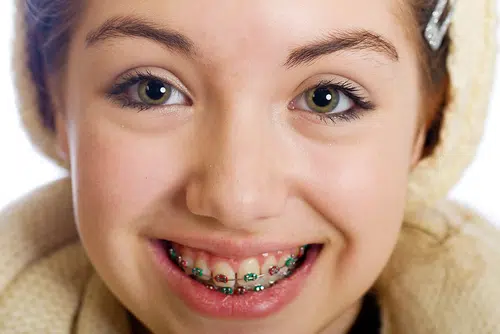
Are You Drooling Over Your Braces?
Babies do it, so do dogs, even orthodontists are prone to it – and it’s really good for you! Drooling; the excessive flow of saliva that wets lips and ends up running down chins, is an essential element of oral health and is nothing to be concerned about but should be viewed as a benefit to keeping your mouth and braces in good shape.
Calgary Orthodontists discuss the merits of spit regularly – as many patients are initially alarmed at the increase in saliva flow once braces are put on or an appliance is worn. Saliva is the mouth’s protector – helping to rinse away tooth-damaging acids and keeping oral tissues moist. It’s natural for the body to increase its flow of drool when there is a foreign material in the mouth – even wearing a sports mouthguard conjures up a lot of slurping thanks to the abundance of saliva – so when braces first go on, or your Invisalign Aligners are first worn, the body’s response is to produce more saliva – with this over-production tending to decrease after a few days.
What are the benefits of drooling over Orthodontic Braces? Well saliva offers several health benefits that include; transporting minerals like calcium and phosphate that help strengthen teeth – the ability to rinse the mouth and dilute sugars and acids that contribute to dental decay and gum inflammation – it’s an immune enhancer as it battles bacteria in the mouth that causes infection – it keeps oral tissues moist by acting as a lubricant; a real advantage to patients who experience the occasional mouth sore due to brackets and wires. And for those patients who are mouth-breathers the lubricating effects of saliva flow protects teeth and helps keep the mouth’s ph level normal.
But what can you do if you tend to experience excessive dryness of the mouth? There are some oral health products designed to counter-balance the effects of oral dryness (xerostomia) that can be caused by certain medications (antihistamines, antidepressants, asthma drugs) and also prove to make a difference for patients who are chronic mouth-breathers.

